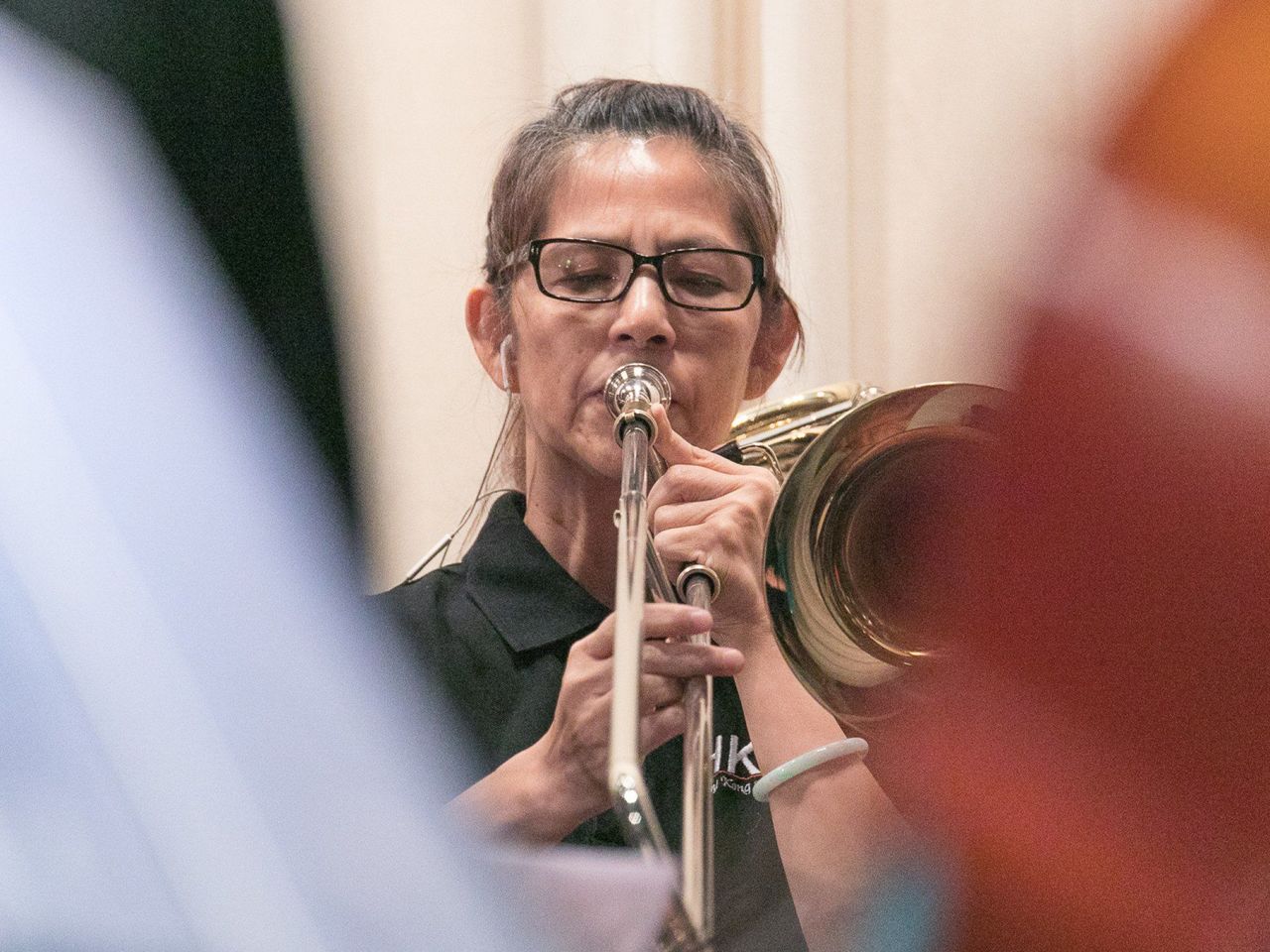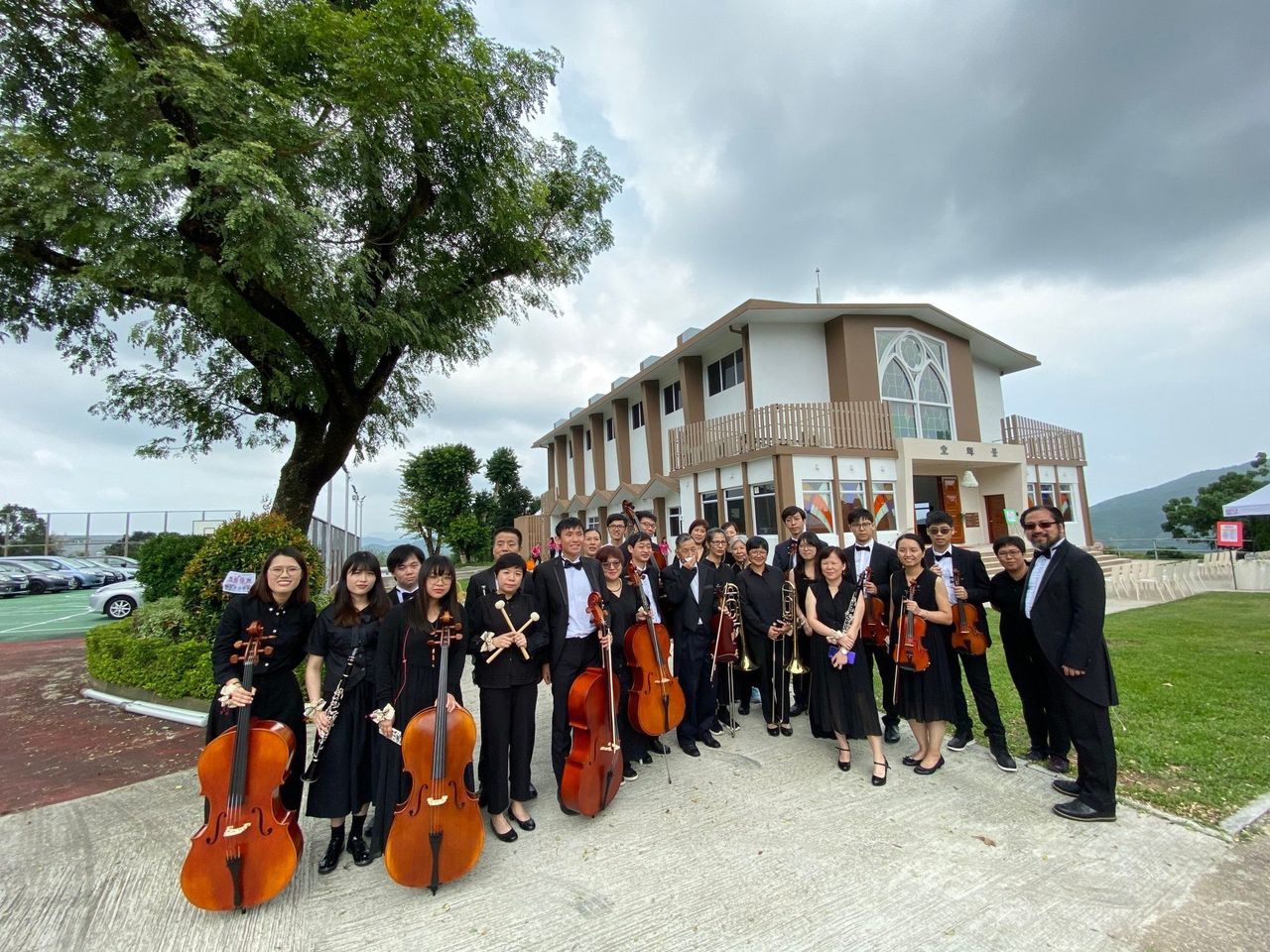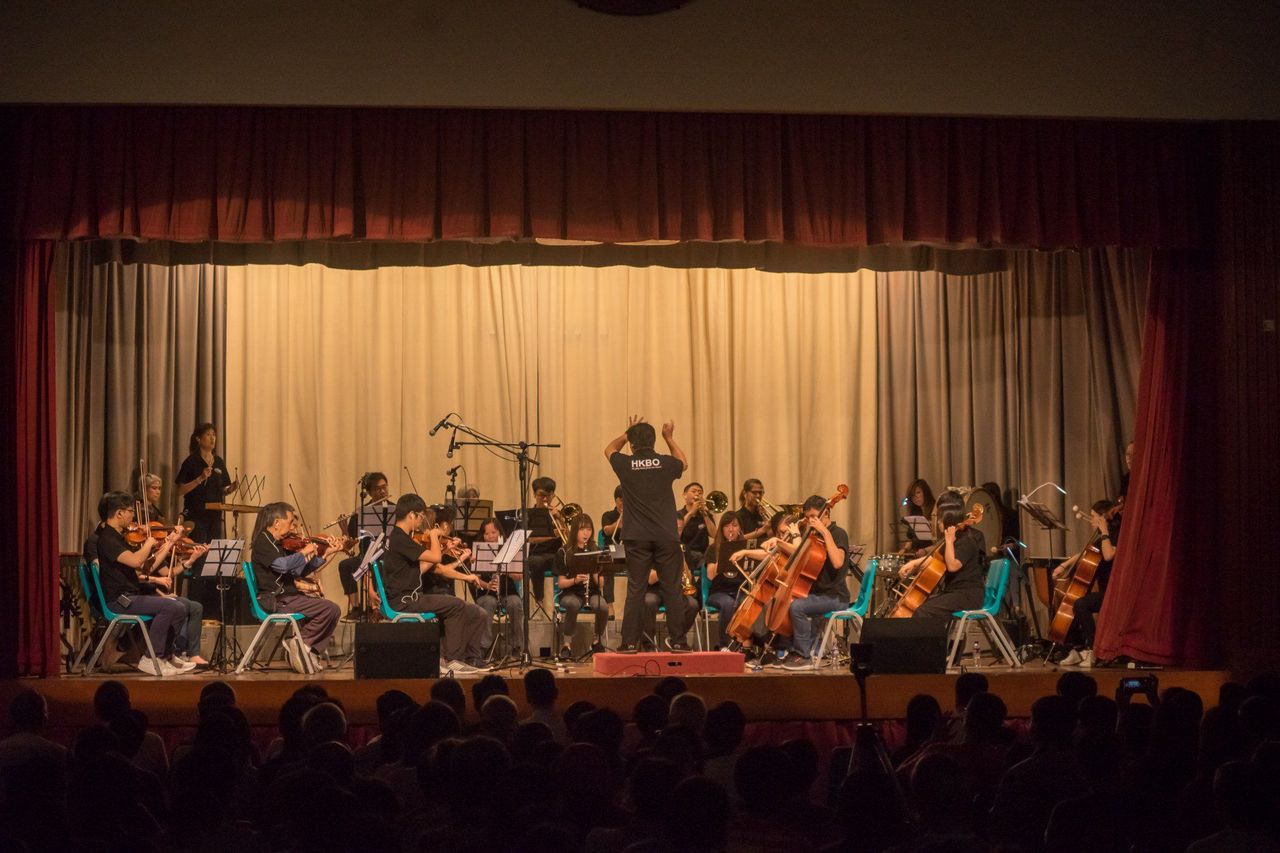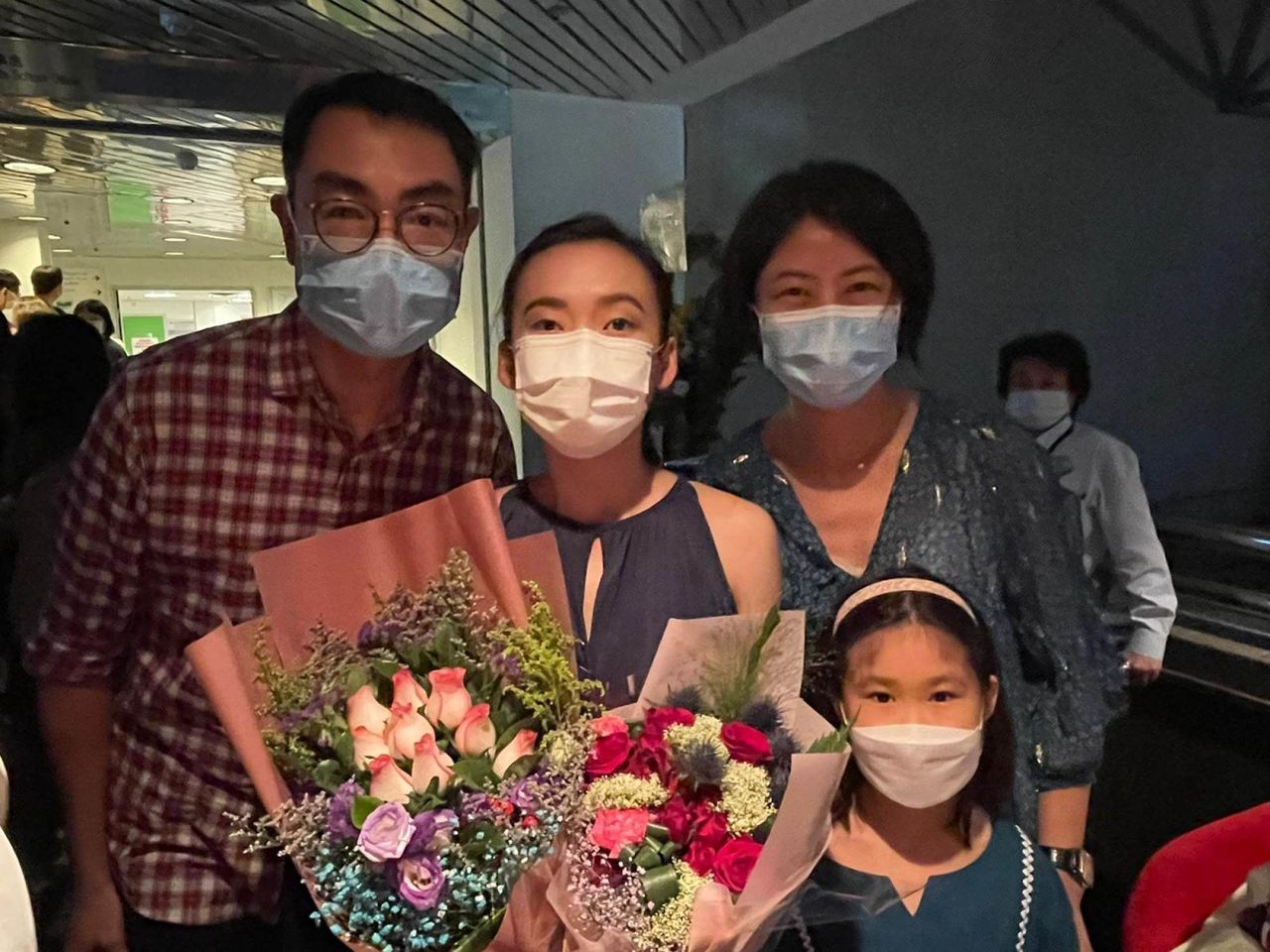
Hong Kong Blind Orchestra could be ‘finished’ if it can’t find new space
Time is running out for the Hong Kong Blind Orchestra (HKBO).
Last month, the six-year-old orchestra was given until August 31 to move out of the school it uses for rehearsals and storing instruments.
Timothy To Wing-ching, the founder of the HKBO, a charity, warns this may finish it off.
To says he received three letters from the Chinese YMCA College in Ma On Shan, in the New Territories, in late July ordering the orchestra to pack up and make way for the installation of a large LED screen in the school hall.
 The HKBO has trained more than 80 visually impaired musicians.
The HKBO has trained more than 80 visually impaired musicians.
“I have sent letters and emails to the principal’s office explaining that the short notice makes it impossible for us to find alternative storage,” To tells the Post a week before the deadline.
“For our organisation, it’s horrible news.”
In an email received by the Post on August 26, the Chinese YMCA of Hong Kong denied that the school, which it manages, had ever entered into a “venue partnership” with the orchestra.
It said the orchestra had only rented the school hall on an hourly basis for rehearsals in the past and the college had offered free storage on a voluntary basis for the orchestra’s instruments and equipment.
The number of rehearsal bookings had declined during the pandemic but the instruments and equipment had stayed, the YMCA pointed out. It also made clear that the orchestra would not be allowed to use the venue again in future.
“Given the uncertainties surrounding the pandemic, the college will not be able to continue renting out the venue to the orchestra after completion of the renovation,” it said.
The HKBO has trained more than 80 visually impaired musicians, including the first blind scholarship student at the Hong Kong Academy for Performing Arts.
Blind musicians and their tutors have, since 2017, been going to the Chinese YMCA College to rehearse on three Sundays every month. The school was the only one that, five years ago, offered to help house the orchestra.
 Blind musicians and their tutors have, since 2017, been going to the
Chinese YMCA College to rehearse on three Sundays every month.
Blind musicians and their tutors have, since 2017, been going to the
Chinese YMCA College to rehearse on three Sundays every month.
Other institutions that To has reached out to since he received the letters have said that, even if they wanted to lend a hand, they would need time to get approval.
“The money that we might have to spend on moving and on temporary storage can sink us,” To says. “I supported the orchestra with my own savings until last year, when we received our first ever grant from the Social Welfare Department which covered a third of our expenses.”
To, who studied conducting in South Korea, set up the HKBO in 2016 after his close friend and trombonist Johnny Chang Siu-lung became blind. To modelled it on similar, well-established orchestras in places such as Seoul and Cairo, Egypt.
“There are few jobs for the blind in Hong Kong,” To says. “Most of them spend their lives relying on government allowances or family support. But blind musicians have such potential. They are incredibly sensitive to music – they can memorise pieces much more quickly.
“We just want to put them on the path of getting qualified and getting jobs as teachers or performers.”
 It has nearly been three years since the HKBO’s last performance, at a wedding ceremony in October 2019.
It has nearly been three years since the HKBO’s last performance, at a wedding ceremony in October 2019.
The orchestra was struggling even before this most recent crisis. The 2019 anti-government protests in Hong Kong and the ongoing coronavirus pandemic led to a drop in membership as visually impaired students felt discouraged from travelling to rehearsals.
It has nearly been three years since the HKBO’s last performance, at a wedding ceremony in a church in October 2019. The event in Clear Water Bay, in Sai Kung, celebrated the union of multiple blind couples.
That same year, the HKBO held its first and only concert at the Chinese YMCA College. To says the “Pride in Dark Concert” had not been successful since many of the guests could not make it to the venue because of traffic disruptions related to the anti-government protests.
 HKBO held its first and only concert at the Chinese YMCA College in 2019.
HKBO held its first and only concert at the Chinese YMCA College in 2019.
“The most difficult thing for a blind person is to have positive thinking that [music] could be their career,” To says. “They think there are lots of obstacles for them.”
That is why the success of someone like former HKBO member Ding Yijie is so important. Four years ago, the 21-year-old violinist was the first blind person to be offered a full scholarship by the Hong Kong Academy of Performing Arts. She has recently graduated.
To believes Ding is an important role model for other visually impaired people.
 Kenneth Tsang (left), HKBO’s senior adviser, and his family attended
former HKBO member Ding Yijie’s graduation recital at The Hong Kong
Academy for Performing Arts in 2022.
Kenneth Tsang (left), HKBO’s senior adviser, and his family attended
former HKBO member Ding Yijie’s graduation recital at The Hong Kong
Academy for Performing Arts in 2022.
He wants more HKBO members to get the chance to perform with professional groups – but it is a dream that, without a practice venue, will be almost impossible to realise.











